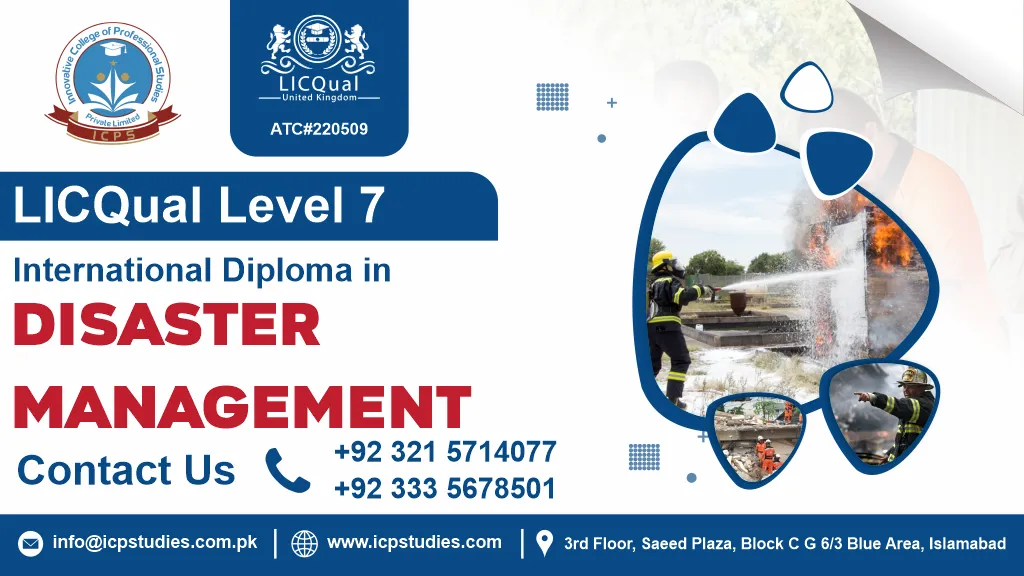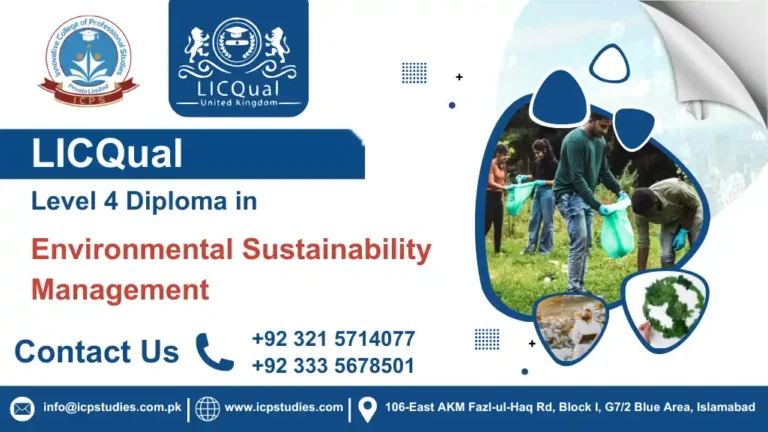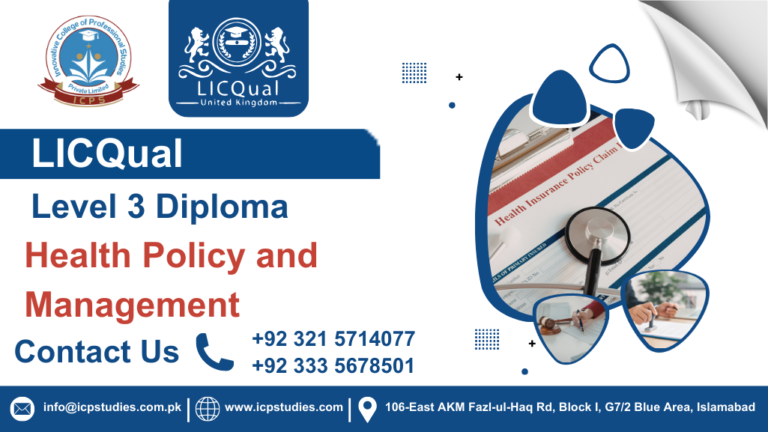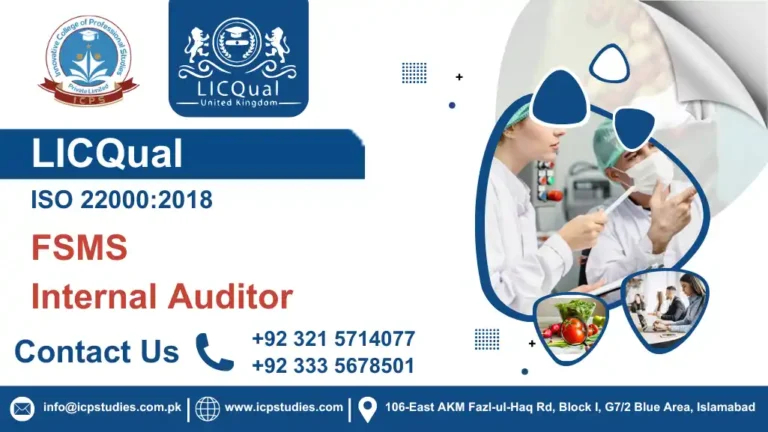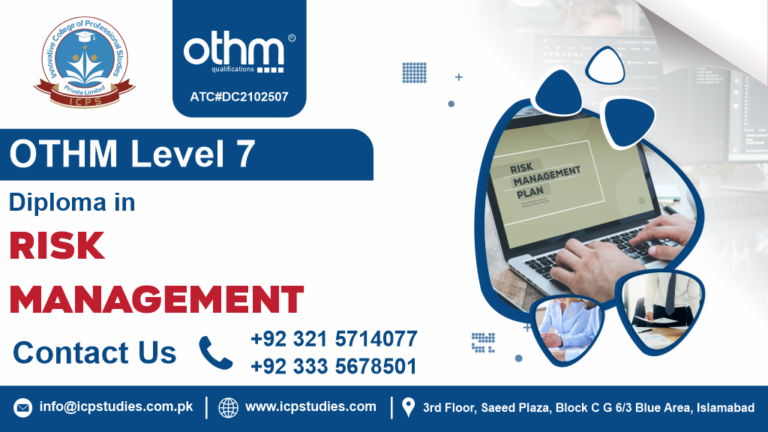Our diploma program offers a comprehensive curriculum designed by experts in the field. From understanding the fundamentals of disaster management to advanced strategies for mitigation and recovery, every aspect is meticulously covered to ensure you have a well-rounded understanding of the subject matter.
Disasters know no boundaries. With our internationally recognized diploma, you’ll gain insights into disaster management from a global perspective. Learn about various types of disasters, their impacts on different communities, and best practices from around the world.
Learn from industry experts and seasoned professionals who have firsthand experience in disaster management. Our faculty members are passionate about sharing their knowledge and are dedicated to helping you succeed in your journey.
Don’t miss out on this opportunity to take your disaster management career to new heights.. Enroll now in the Level 7 International Diploma in Disaster Management today and take the first step toward a rewarding and impactful career. With our comprehensive curriculum, expert faculty, and flexible learning options, you’ll gain the knowledge and skills needed to effectively manage disasters and make a difference in the lives of others.
All About Level 7 International Diploma in Disaster Management
Course Overview
The Level 7 International Diploma in Disaster Management is an advanced-level certification program designed to provide participants with comprehensive knowledge and skills in managing various aspects of disasters, emergencies, and crises on an international scale. This diploma course typically targets professionals and individuals with a background or interest in emergency management, humanitarian aid, public safety, and related fields.
Participants gain a solid understanding of the fundamental principles and concepts of disaster management, including risk assessment, hazard analysis, and vulnerability assessment.
Participants learn about the coordination mechanisms and communication strategies essential for effective disaster response operations. This includes understanding incident command systems, establishing communication networks, and coordinating multi-agency responses.
The course typically covers strategies for disaster recovery, rebuilding, and resilience-building in communities affected by disasters. Participants learn about post-disaster assessment, resource mobilization, and long-term recovery planning.
Overall, the Level 7 International Diploma in Disaster Management aims to equip participants with the knowledge, skills, and competencies needed to effectively manage disasters and contribute to building resilient communities and societies. Graduates of the program are prepared to take on roles in emergency management agencies, humanitarian organizations, government agencies, non-governmental organizations (NGOs), and other relevant sectors involved in disaster response and preparedness efforts.
Study Units
Learning Outcomes
Here are the expected outcomes for each of the study units:
- Principles of Disaster Management:
- Understand the fundamental principles and concepts of disaster management.
- Identify the various stages of disaster management: mitigation, preparedness, response, and recovery.
- Analyze case studies to comprehend the application of disaster management principles in real-world scenarios.
- Develop strategies for effective disaster preparedness and response.
- International Research: Confronting the Challenges of Disaster Risk Reduction and Development:
- Explore global perspectives on disaster risk reduction (DRR) and development.
- Analyze the challenges and complexities associated with international disaster risk reduction efforts.
- Evaluate the role of international organizations, treaties, and frameworks in addressing disaster risk and promoting sustainable development.
- Propose innovative solutions and strategies for improving international cooperation in disaster risk reduction.
- Disaster Resilience, Adaptation, and Sustainability:
- Understand the concepts of disaster resilience, adaptation, and sustainability.
- Examine the factors contributing to community resilience in the face of disasters.
- Analyze the relationship between climate change, environmental degradation, and disaster vulnerability.
- Develop strategies for promoting resilience, adaptation, and sustainability in disaster-prone regions.
- Vulnerability and Risk Assessment:
- Gain insights into vulnerability and risk assessment methodologies.
- Identify and analyze the social, economic, and environmental factors contributing to vulnerability and risk.
- Apply quantitative and qualitative methods to assess disaster vulnerability and risk at the community and regional levels.
- Develop risk reduction strategies based on vulnerability and risk assessment findings.
- Advanced Research Methodology – Dissertation:
- Demonstrate proficiency in research design, data collection, and analysis techniques.
- Develop a research proposal addressing a specific topic or issue related to disaster management.
- Conduct independent research using appropriate research methodologies and techniques.
- Present findings effectively through a dissertation that contributes to the existing body of knowledge in disaster management.
- Participants – Governmental Disaster Management Agencies:
- Understand the roles and responsibilities of governmental disaster management agencies.
- Analyze the organizational structures, policies, and frameworks governing disaster management at the governmental level.
- Identify challenges and opportunities faced by governmental agencies in disaster preparedness, response, and recovery.
- Develop strategies for enhancing the effectiveness and efficiency of governmental disaster management agencies in mitigating and managing disasters.
These outcomes are designed to equip participants, particularly those from governmental disaster management agencies, with the knowledge, skills, and tools necessary to address the complexities of disaster risk reduction and management at the international level.
Admission Criteria
Here are the typical entry requirements for the Level 7 International Diploma in Disaster Management:
- Educational Background:
- A bachelor’s degree or equivalent qualification from a recognized institution is usually required.
- Preferably, applicants should have a background in disciplines such as disaster management, emergency management, public administration, environmental science, geography, sociology, or related fields.
- Work Experience:
- While not always mandatory, relevant work experience in disaster management, emergency response, humanitarian aid, public safety, or a related field is highly advantageous.
- Governmental disaster management agency participants may be required to have prior experience working within governmental disaster management or related agencies.
- Language Proficiency:
- Proficiency in the language of instruction (usually English) is typically required. Applicants may need to provide evidence of language proficiency through standardized tests such as the TOEFL or IELTS, especially if English is not their native language.
- References:
- Applicants may be required to submit letters of recommendation or references from academic or professional referees who can attest to their qualifications, skills, and suitability for the program.
- Statement of Purpose:
- A statement of purpose or personal statement outlining the applicant’s motivations, career goals, and reasons for pursuing the diploma in disaster management may be required.
- Interview:
- Some institutions or programs may conduct interviews as part of the selection process to assess the applicant’s suitability, motivation, and readiness for the course.
- Additional Requirements for Governmental Disaster Management Agency Participants:
- Participants from governmental disaster management agencies may need to provide authorization or endorsement from their respective agencies.
- Relevant government officials may also be required to meet additional eligibility criteria specified by their agencies or sponsoring bodies.
It’s important for prospective applicants to carefully review the specific entry requirements outlined by the institution or program offering the Level 7 International Diploma in Disaster Management, as requirements may vary slightly between different educational institutions and programs. Additionally, applicants should ensure that they meet any additional prerequisites or eligibility criteria specified by the institution or program they are applying to.
Ideal Candidate
The Level 7 International Diploma in Disaster Management is designed for individuals who are passionate about making a difference in times of crisis and are interested in pursuing a career or advancing their expertise in disaster management. This course is ideally suited for the following:
- Emergency Responders and Disaster Management Professionals: Experienced professionals working in emergency response, disaster relief, or humanitarian aid organizations seeking to enhance their knowledge and skills in disaster management.
- Government Officials and Policymakers: Government officials, policymakers, and civil servants involved in disaster planning, preparedness, and response at the local, regional, national, or international levels.
- Humanitarian Workers and Volunteers: Individuals involved in humanitarian aid organizations, non-governmental organizations (NGOs), and volunteer groups who want to gain a deeper understanding of disaster management principles and practices.
- Students and Researchers: Students and researchers interested in pursuing a career or conducting research in disaster management, emergency management, public health, environmental science, geography, sociology, or related fields.
- Professionals Seeking Career Transition: Professionals from diverse backgrounds looking to transition into the field of disaster management and broaden their career opportunities.
- Governmental Disaster Management Agency Participants: Government officials, officers, and personnel working within governmental disaster management agencies seeking to enhance their knowledge, skills, and competencies in disaster management practices and policies.
- International Development Practitioners: Professionals involved in international development projects, community development initiatives, and sustainable development programs who recognize the importance of integrating disaster risk reduction and resilience-building strategies into their work.
- Community Leaders and Advocates: Community leaders, activists, and advocates committed to building resilience and promoting disaster preparedness within their communities.
This course caters to a diverse range of individuals with different backgrounds, experiences, and career aspirations who share a common goal of mitigating the impact of disasters and building more resilient communities and societies. Whether you are a seasoned professional or just starting your journey in disaster management, this diploma provides the knowledge, skills, and tools necessary to make a meaningful impact in the field.
FAQs for Level 7 International Diploma in Disaster Management

